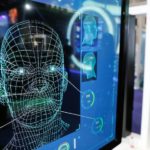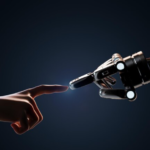Voice recognition of te Reo Māori and automated Maori translations via a computational device is colonisation and commercialisation no matter if by Māori or by tauiwi.
Our traditional stories warn us of such recordings of the voice. Hence, I believe the reason why our learned old people shied away from recordings of the person and voice.
Māori are perhaps the biggest culprit of digital colonisation and commercialisation of te reo Māori and data sovereignty. The Māori who created terms for the Android phone and the Samsung Printers who do not share the kupu so that the new terminology can be normalised or the online Māori dictionary that charges people to use it. The authors of the hundreds of Māori dictionaries have also set a precedence of commercialising and colonising te reo Māori. These have been common practices by Māori and non Māori against Māori yet no one speaks out until it threatens a Māori owned business directly.
Digital Colonisation
Te Hiku Media (an Incorporated Society) in this video claim that the Global Translation, Localization and Marketing Service company Lionbridge , who want to assist people to use and access te reo Māori are forcing digital colonisaiton on Māori and creating data sovereignty issues. I defined the term digital colonisation in 2015. The definition is here https://www.taiuru.co.nz/definition-digital-colonialism/
Of the ten criterion, only criterion 4 could be used to say LionBridge and Te Hiku are committing digital colonisation of Māori.
Criterion 4 states:
Digital and Knowledge workers who consult Indigenous Peoples to digitise their content and then digitise the content, but who fail to explain the power of technology and the risks including losing all Intellectual Property Rights.
Technology impacts
The digitisation of texts (corpus) of written Māori and recorded voice could be used for computers and Artificial Intelligence to guess and learn to speak te reo Māori. Google Translate, Bing and other online translation services rely on such corpus and texts.
A digitised voice is stored as data in hardware and software created by non New Zealand companies in a propriety format that we pay a licence to a non New Zealand conglomerate to store in their fortified system. Then our voices can be used without out our permission in various ways we are not familiar with and in future ways that we may not be able to predict today.
Licences and terms of agreements need to be considered when offering your voice to be digitised. If there is no agreement, then a digitised voice can be owned by a third party and used for other projects such as speech recognition, Artificial Intelligence or perhaps it could be the new voice of a future robot. The possibilities are limitless.
Cosmology
Firstly we need to consider the cosmology aspect of using our reo for computational output. The story of Maui catching the winds so he could marry two beautiful woman called Hine-tu-Repo and Hine-te-Ngahere in the tradition of tapatapa, is a lesson about voice recognition and the dangers of voice and text recordings being used against our will.
Maui visited his Aunty Hine-Roriki to seek her assistance to call her wind so he could win the race. When Hine-Roriki refused, Maui tricked her by trapping her voice in his calabash. He then used her voice to call to the wind. By stealing her voice, Maui stole her ohonga a part of her which he refused to return despite Hine-Roriki asking for the return.
The lessons of the traditional story applied to today’s technology world remind us to consider that our voices have a mauri and a wairua. Our voices travel via cables, air, oceans and through multiple devices and countries. Our voices are then stored in multiple places on its journey to its final destination. Once our voice has been recorded, we can never get it back and we have no control of who can access our voice nor for what purpose.
Ownership of te Reo Māori
It is important to note the conflict of interest that Te Hiku Media have in speaking out on LionBridge. It is also important to state the amazing work Te Hiku Media have done in the digital arena for Māori and te reo. Both organisations are assisting te reo Māori to be normalised and in the revival effort.
Before stating that te reo Māori is able to be colonised or have its sovereignty taken away, we need to consider that te reo Māori is an official language of New Zealand. Many advocates have fought for te reo Māori to be shared and normalised. Many public debates have occurred about introducing te reo Māori into the school curriculum and making it compulsory in all schools.
So how does one colonise a public language? Te Reo Māori is a taonga recognised by the Treaty of Waitangi Tribunal WAI 11 and subsequently in the Maori Language Act 1987.
In 2018 the New Zealand budget by Treasury states that a total of just under $99 million will be used for the promotion of Māori language and culture through direct funding of broadcasting entities (Te Mangai Paho and Māori Television Service), Te Matawai and Te Taura Whiri i Te Reo Māori (Māori Language Commission) . This excludes tax payer funding into the education system: pre schools, kōhanga reo, primary schools, secondary schools, PTE’s and tertiary institutions who also attract large amounts of funding for te reo and the many other local and regional initiatives to promote and normalise te reo Māori.
Conclusion
Te Reo Māori is not owned by one person, one Iwi or Māori. We want it shared and to be normalised. To do this we need to ensure that te reo Māori is used everywhere by everyone.
Te Hiku are battling a larger and better resourced international company for the right to digitise te reo Māori. No one can colonise te reo Māori and its data. The people who will lose the most are the licensed interpreters and native speakers who can add a human aspect to the translation, that at this stage a computer can not. Such automation of te reo Māori could lead to another modification of te reo Māori to make it relevant, much like the English language has had to adapt to societal changes.





Leave a Reply